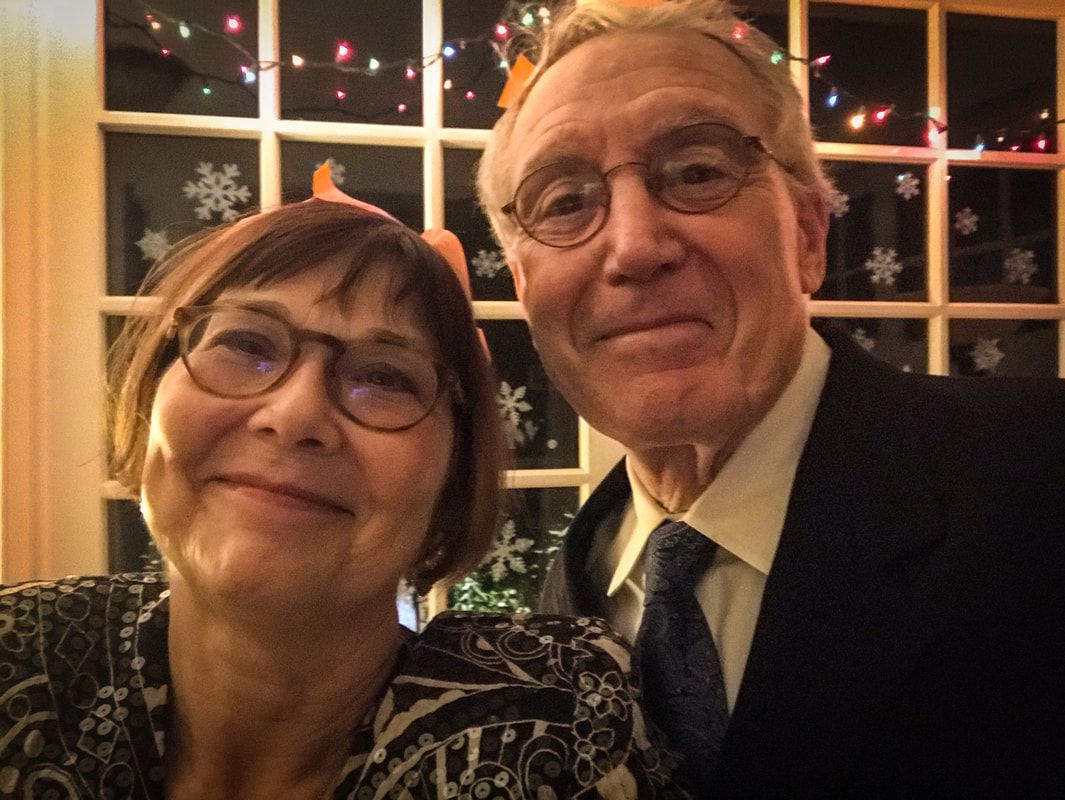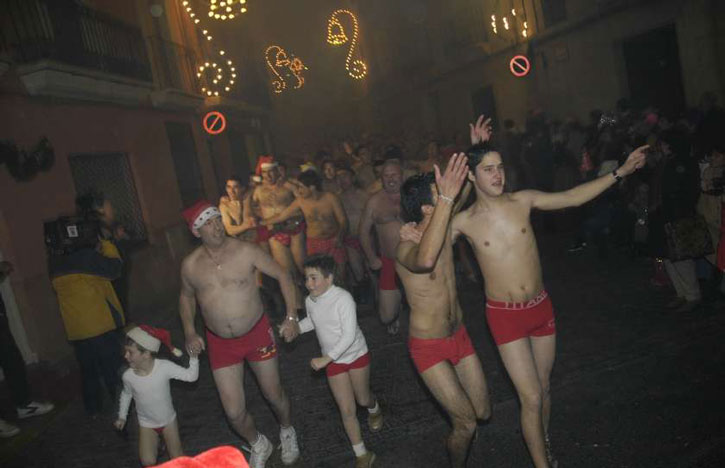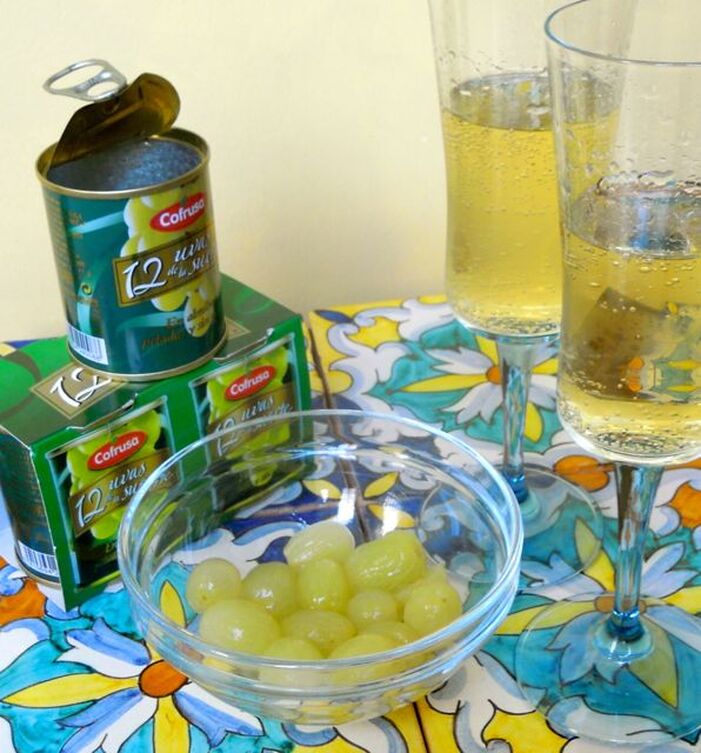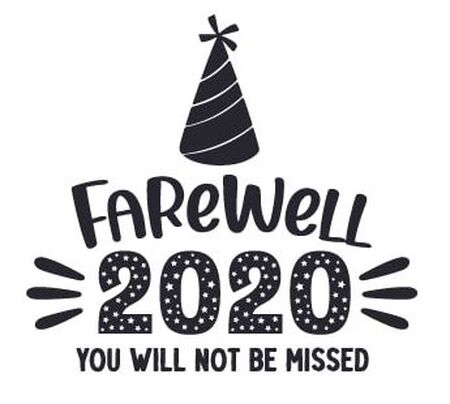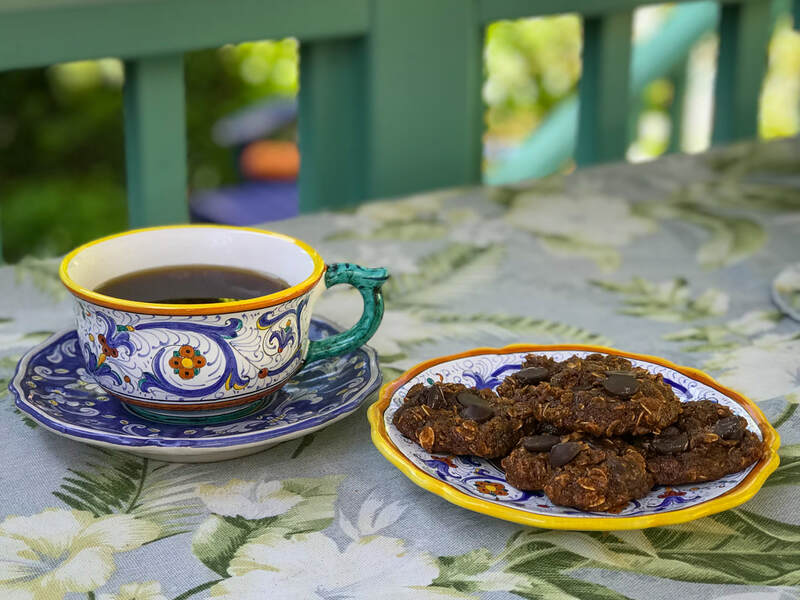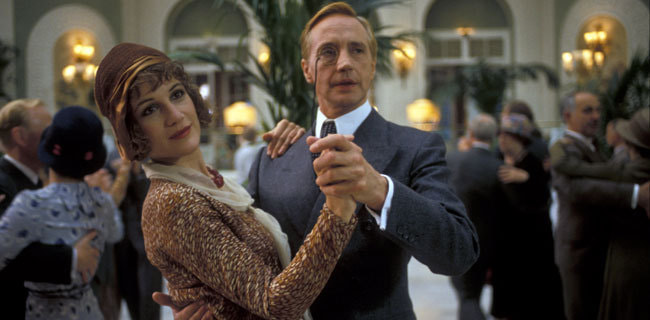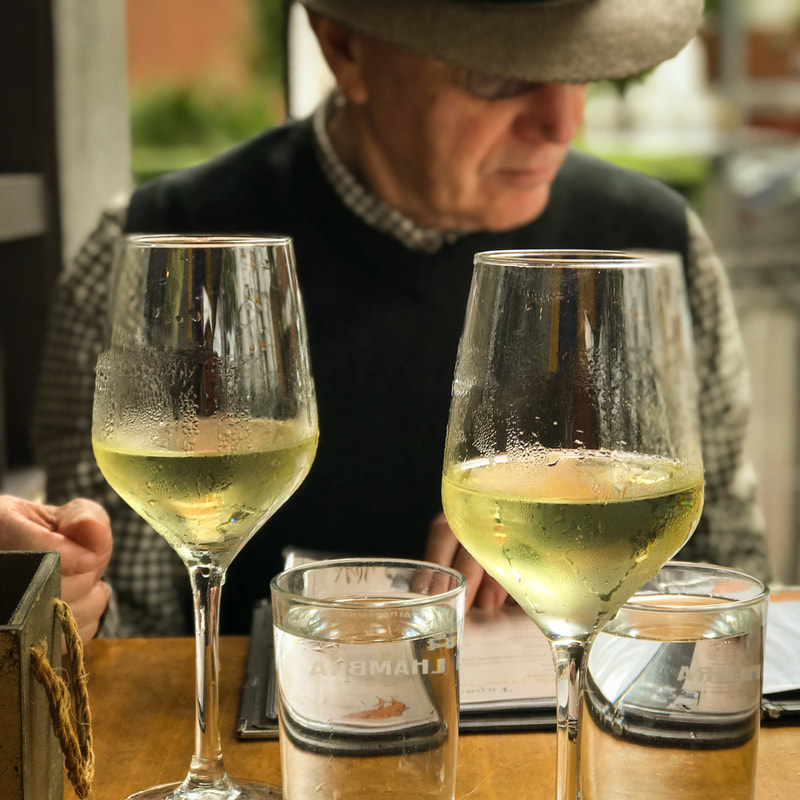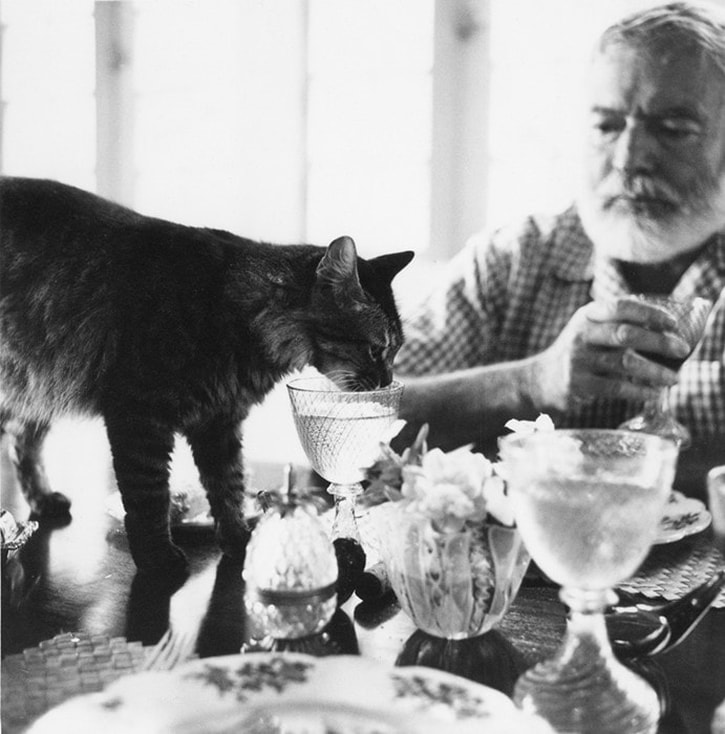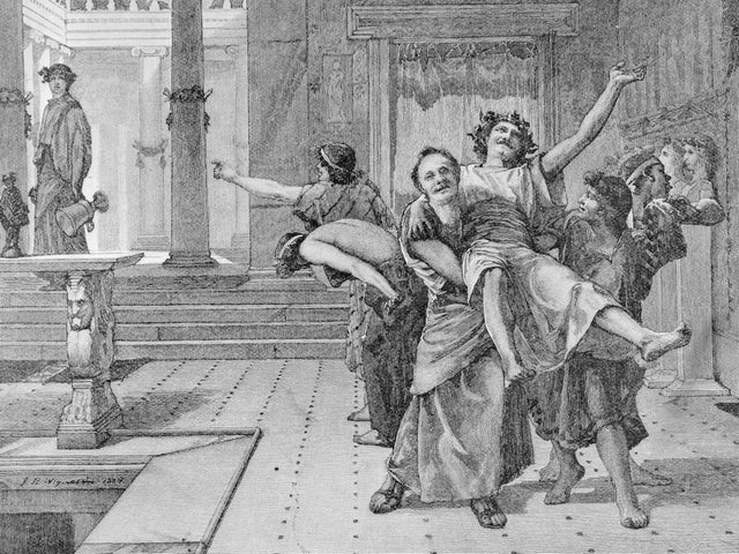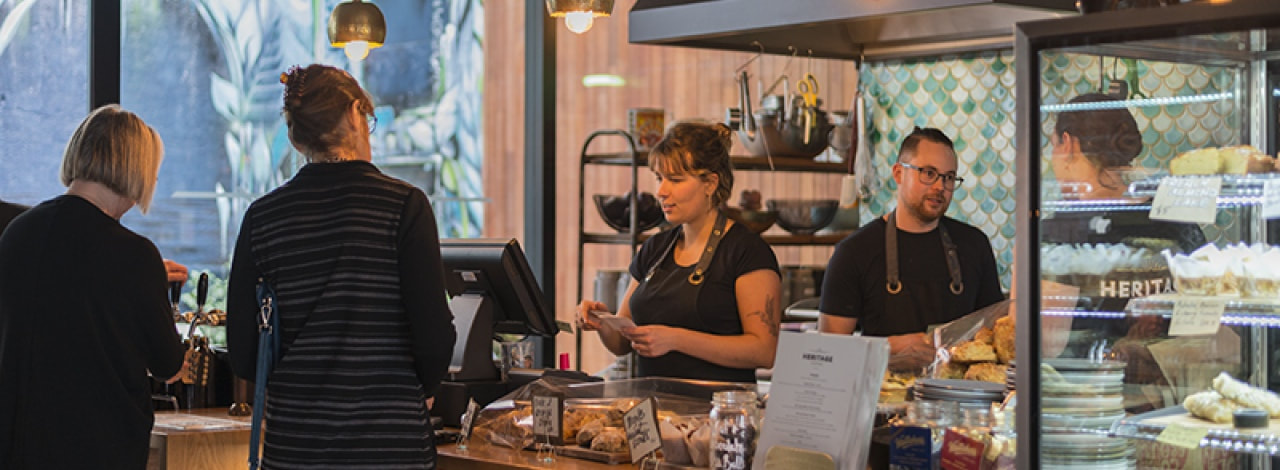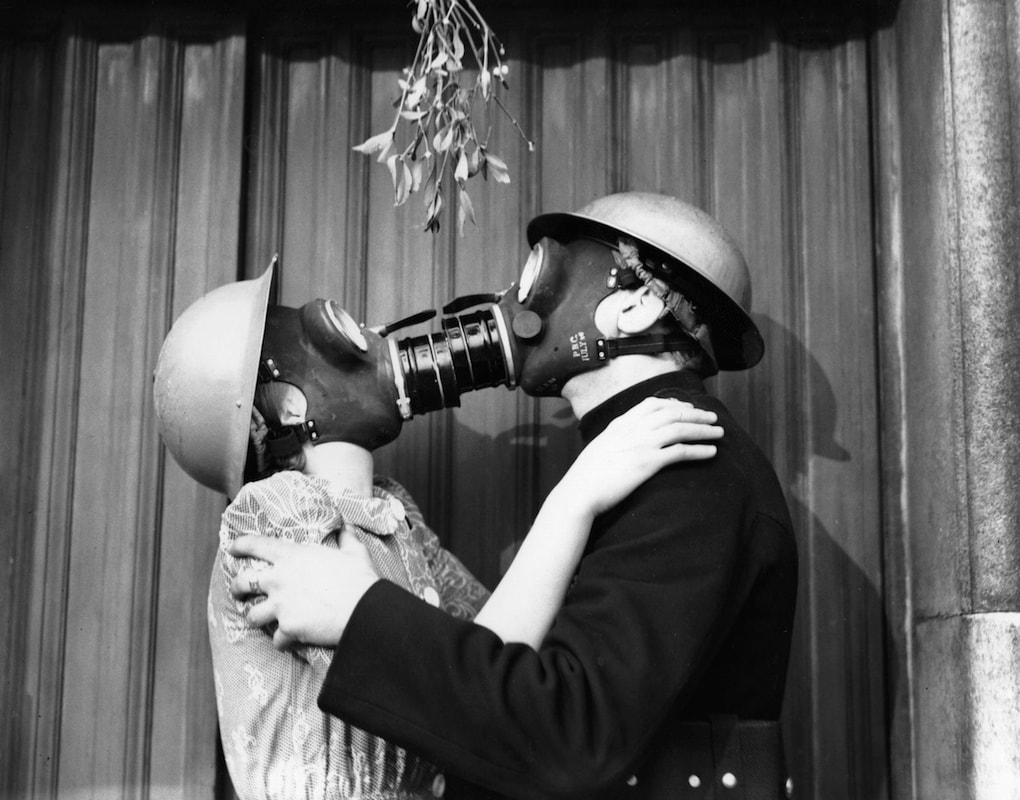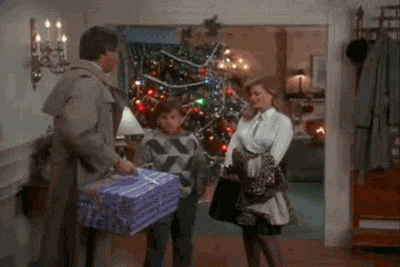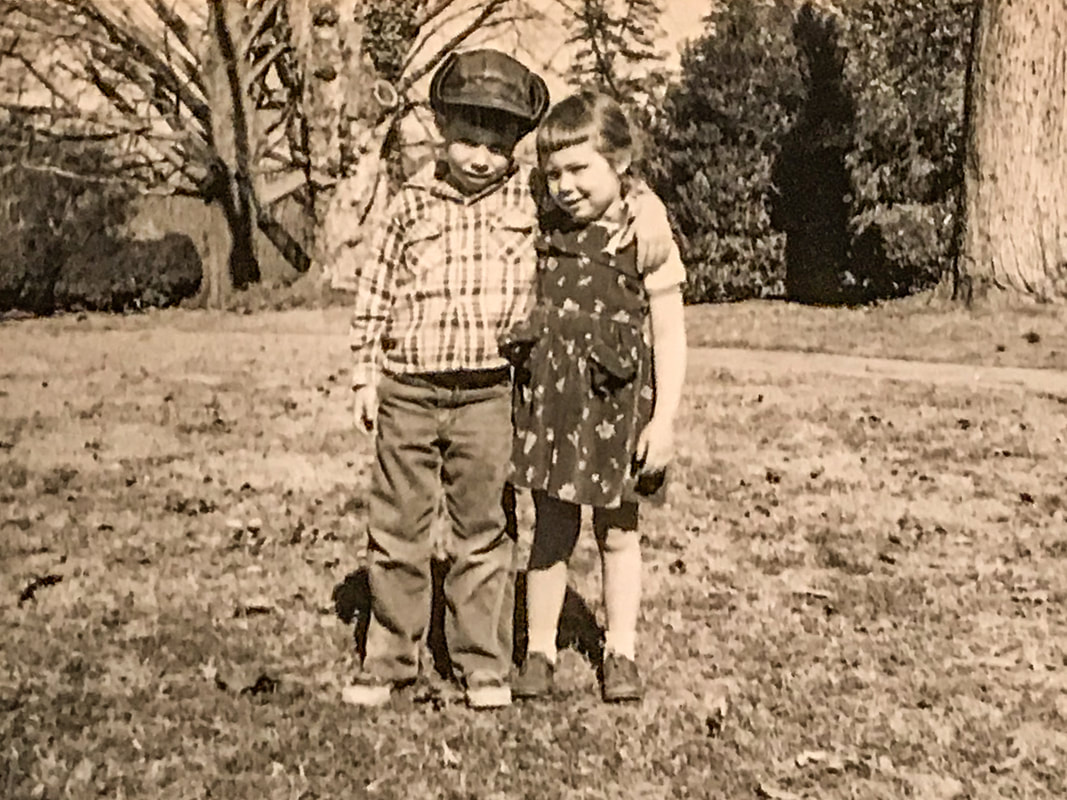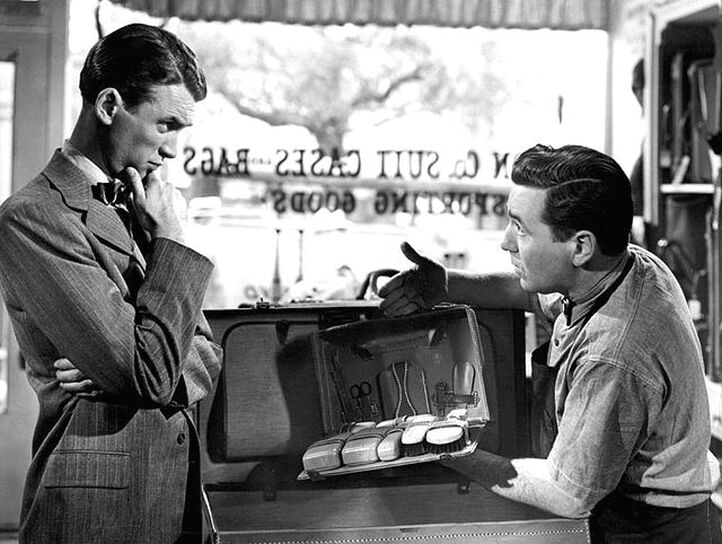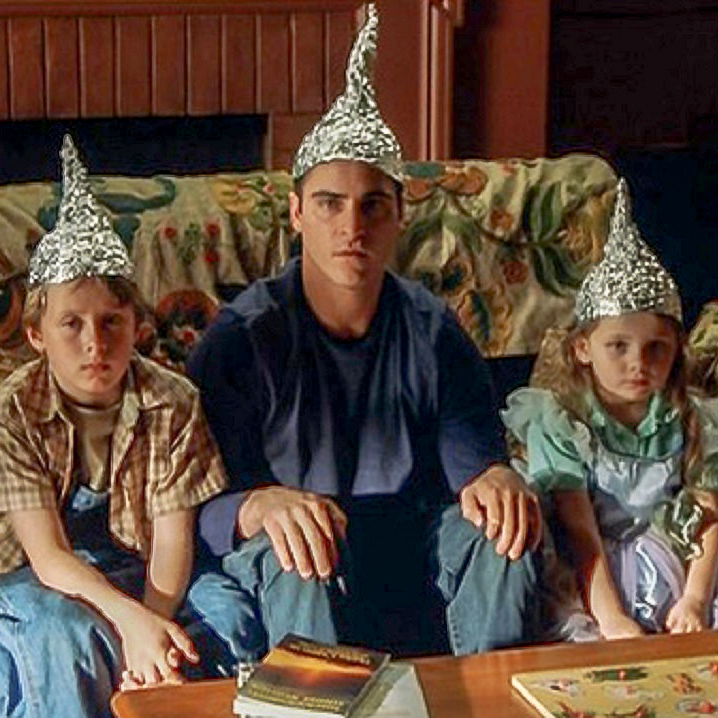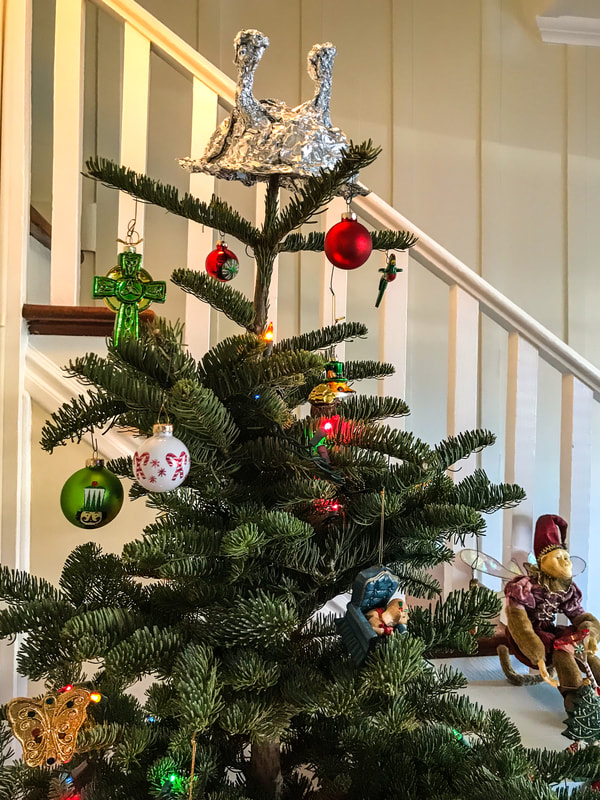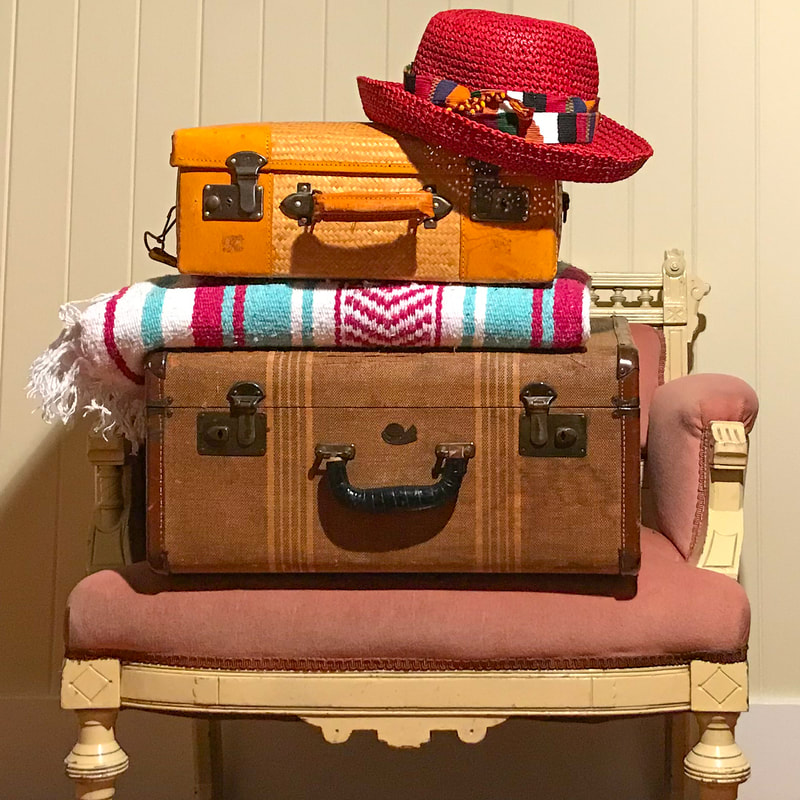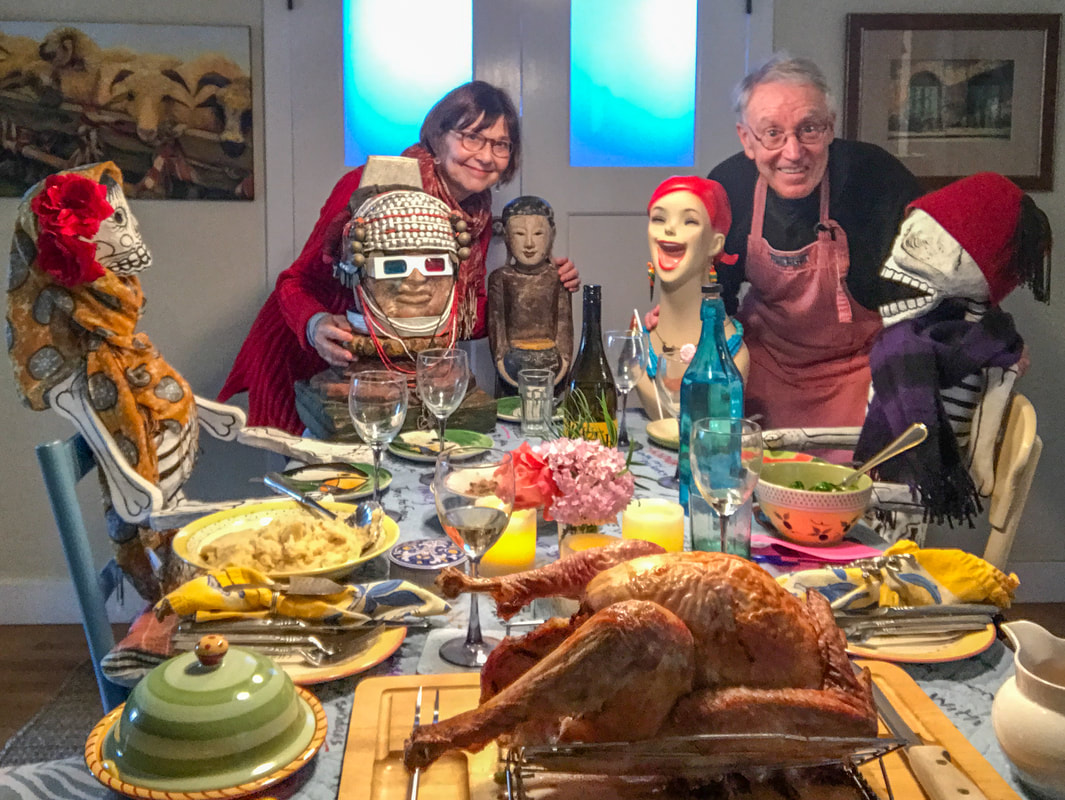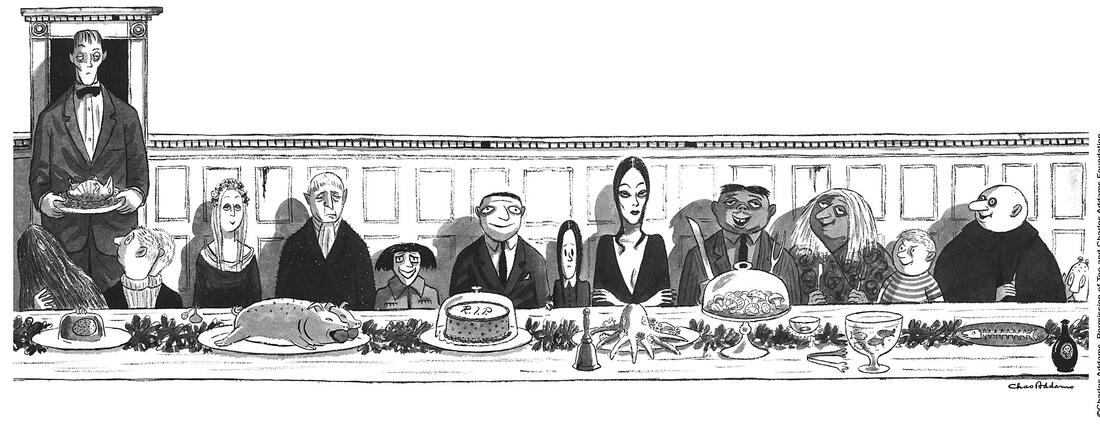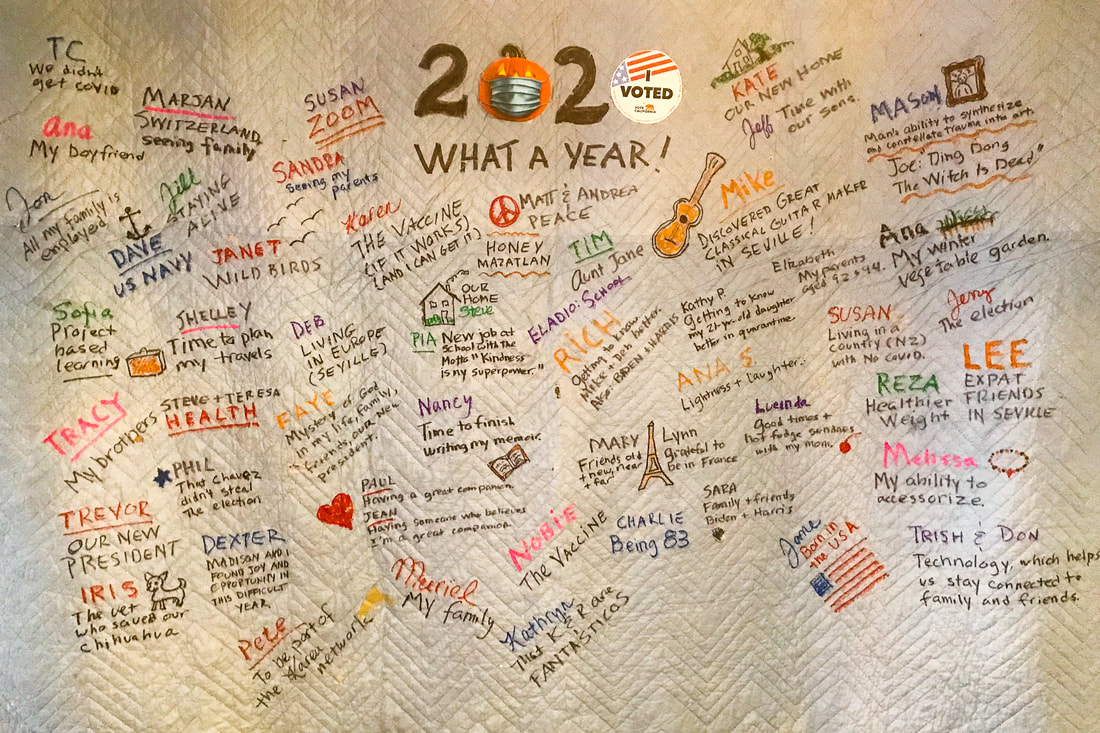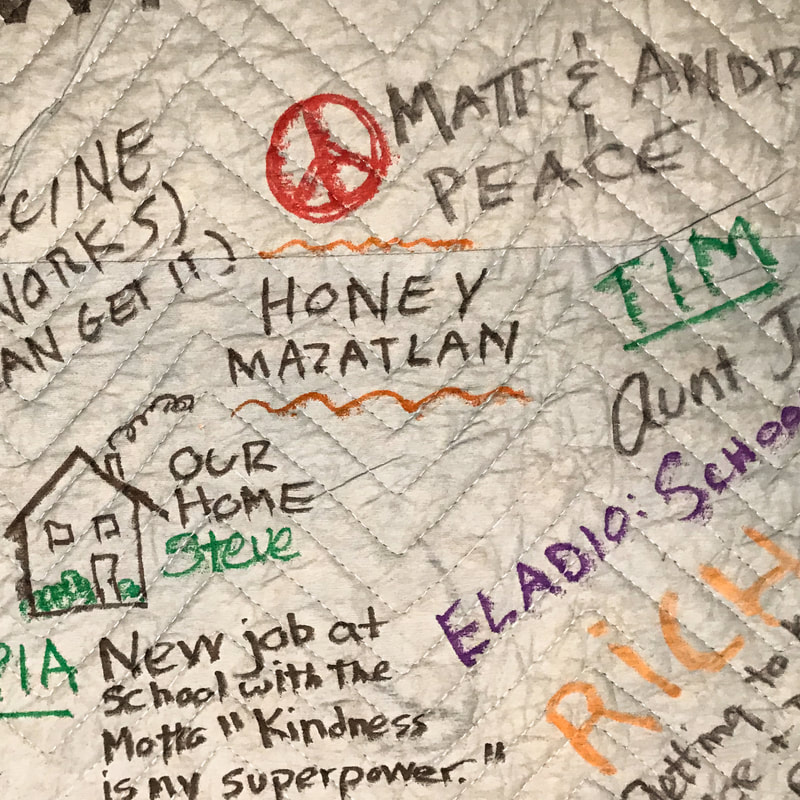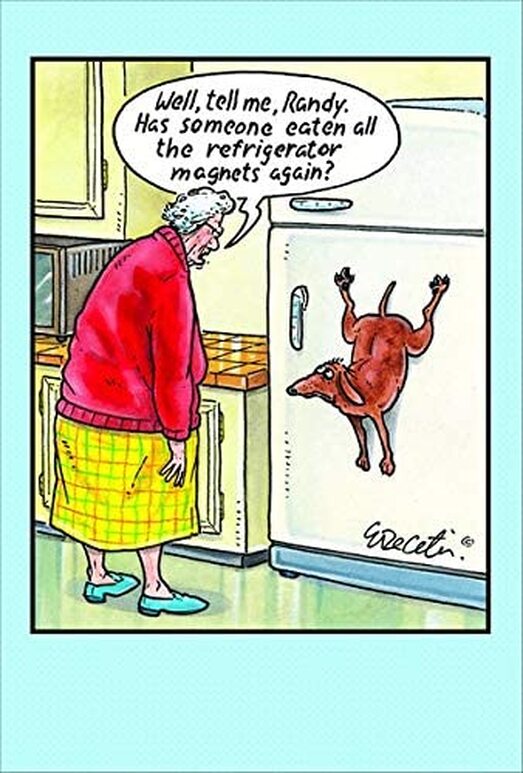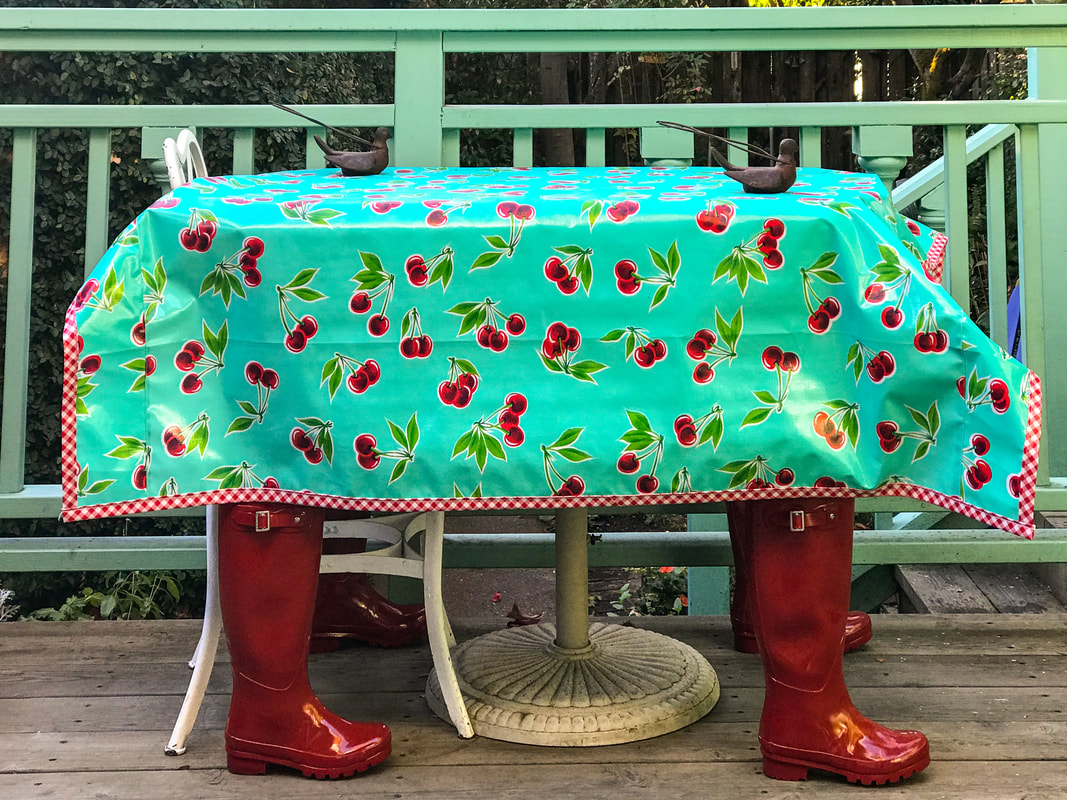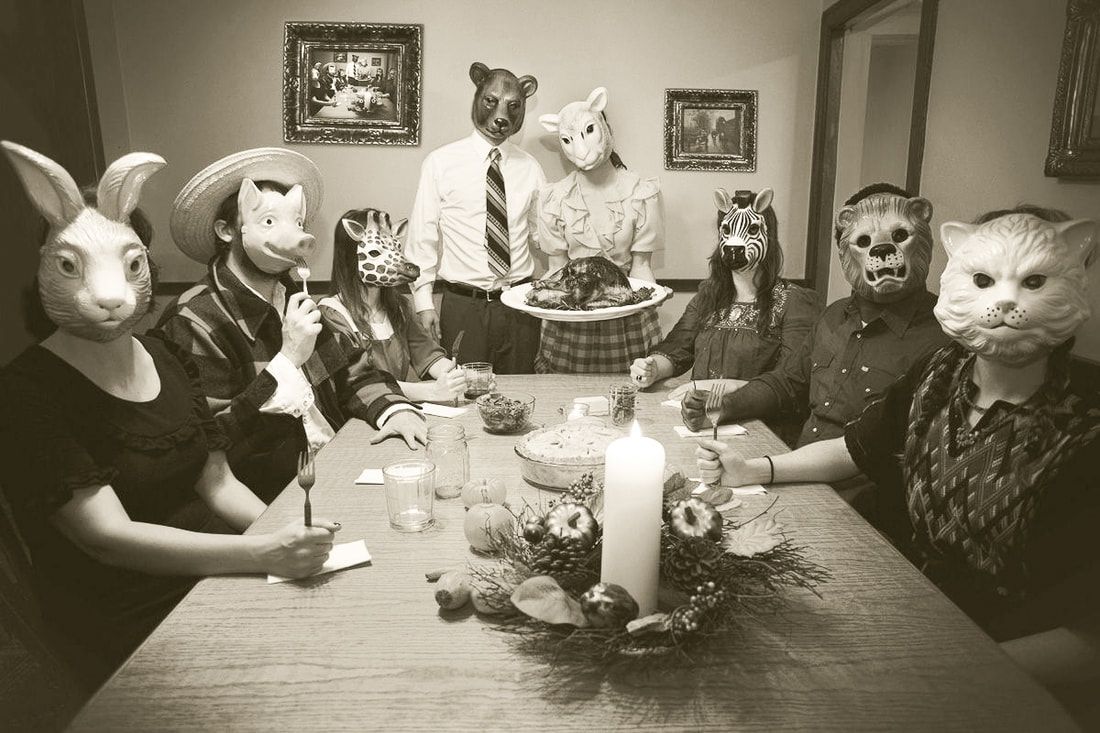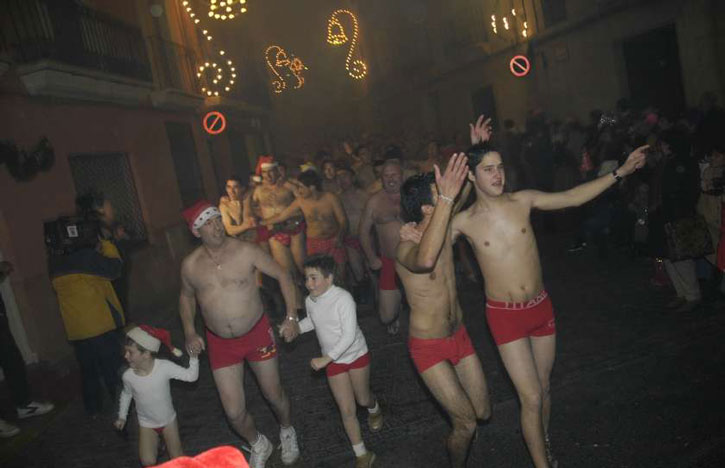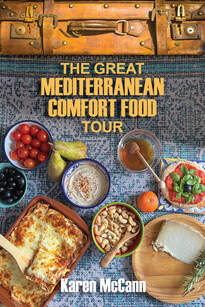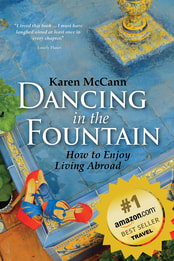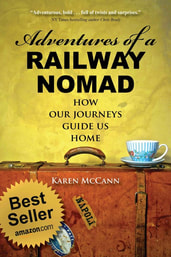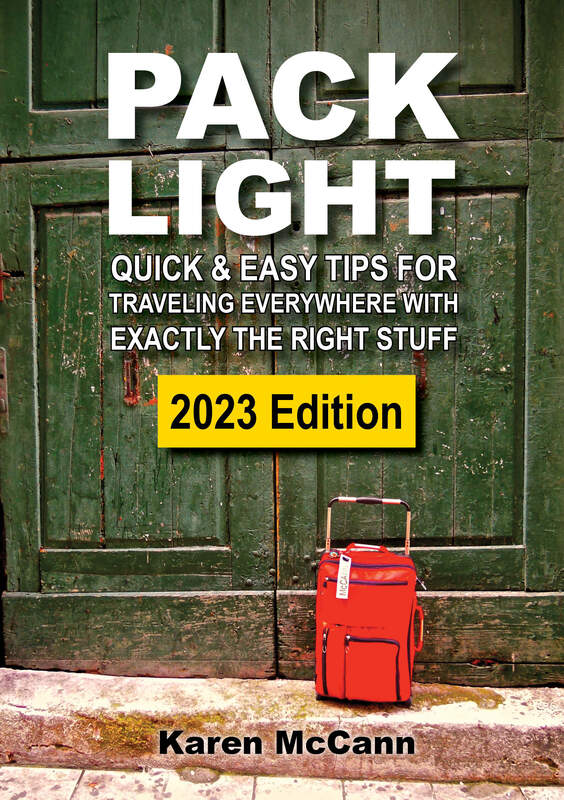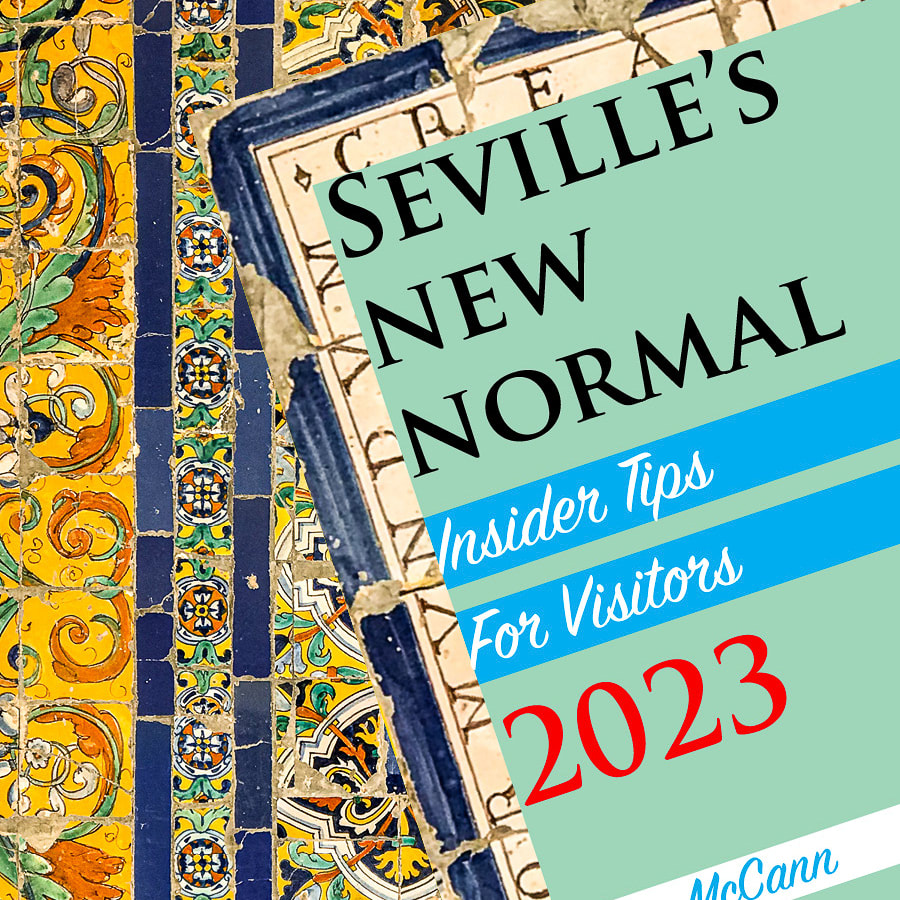|
In a non-pandemic year (remember those?), I often skip New Year’s Eve. By the time I’ve partied my way through Halloween, Thanksgiving, Winter Solstice, Christmas Eve, Christmas Day, and our wedding anniversary (December 27th, 34 years ago), I’m usually longing for a night in with my feet up. But not this year. I am staying vigilant until the very last second of 2020. If this year has some sneaky surprise horror ending planned, at least it won’t catch me unawares. And even if 2020 meekly lies down in its coffin, I want to bear witness as the universe drives a stake through its heart and slams the lid on it forever. Then I intend to dance on its grave singing “Ding Dong the Witch is Dead.” Satisfying as all that may be, the main purpose of New Year’s Eve is to arrange for better luck in the year ahead. It’s the time to lay down some ground rules and let 2021 know, right from the start, that we expect better treatment than we had from its predecessor. Fortunately, public spirited citizens have spent thousands of years working out ways to make the future rosier — and passed their wisdom on to us. For years I’ve followed three luck-enhancing strategies and am researching others to see if I can up my game. When Rich and I moved to Spain, we soon learned that absolutely everyone wears their lucky bragas rojas (red undergarments) on New Year’s Eve. In the excitement of last year’s celebrations I forgot to put mine on and have worried ever since that 2020 was entirely my fault. If so, sorry about that, folks! I’ve certainly learned my lesson. I’m hoping you, my readers, will help balance the cosmic scales by donning your own bragas rojas on December 31st. Don’t worry, you’re not expected to reveal the jolly undies to anybody. Unless you happen to live in the tiny town of La Font de la Figuera near Valencia, where it’s customary to strip down to your scarlets and run through streets lined with cheering neighbors. I was considering introducing this custom here in San Anselmo, California, but Rich — who is usually game for any lark — pointed out that spending New Year’s Eve in jail for indecent exposure would hardly start the year off on the right foot. Another Spanish custom I love is las doce uvas de la buena suerte, the twelve grapes of good luck. As the clock strikes midnight, you pop a grape into your mouth at each chime of the clock. Insider tip: grapes are remarkably hard to swallow that fast, so peel them, buy very small ones, or get the canned variety soaked in juice. And whatever you do, swallow all twelve. “I was in England one year,” a Spanish friend told me. “And dropped one of the grapes in a public square. It rolled away and I raced after it, grabbed it, and ate it, to the horror of my friends. But hey, who cares about hygiene when your luck is at stake?” I was aghast when I first heard this story, but after 2020, I see her point. As soon as I finish my grapes, I’ll be tossing a bucket of water out the front door. This satisfying custom, which originated in Mexico, Cuba, or Puerto Rico (depending on whose account you believe), evicts any negative energy that might be lingering about the house. Ideally you carry the bucket from room to room to collect all the bad juju, then you pitch the water out a window or the front door. For extra good luck avoid dumping it on any passing pets or pedestrians. Lately I’ve been on the lookout for other good-luck rituals. But like running down San Anselmo Avenue in my underwear, few seem really practical. For instance, there’s “first footer,” popular in Great Britain and elsewhere, which claims it’s auspicious to have a dark-haired male as your first visitor in the new year. Now that I’m sheltering in place, who am I going to get — the UPS guy? The Danes banish evil spirits by smashing old plates against the front doors of friends and relatives; the bigger your pile of crockery shards, the more fortune will smile on you. But somehow I don’t feel my neighbors would take this in the warm-hearted, fun-loving spirit intended. Nor would they (or the hyper-vigilant fire department two blocks away) appreciate me torching effigies of my enemies in the back yard, as is common in Ecuador and Panama. A friend of mine came up with a good alternative: he bought a piñata of a politician who will soon be leaving office, cut off its head, beat it with a stick, and drove his car over it. Twice. Will that bring him luck? Who knows? But he said it felt terrific at the time. Every country and culture has its own traditions, and while we can scoff at them as superstition and tomfoolery, I believe it’s fun (and wise) to do our bit to entice Lady Luck back into our lives. We’ve certainly missed her this past year. What will 2021 look like? Speculation ranges from more of the same (which will certainly be true for a while) or a return to life as we once knew it (a lovely fantasy). The truth is, the world has changed too much to bounce back to the old normal, and so have we. And that’s not all bad; some parts of 2020 are worth carrying forward. (Yes, they are!) For instance, many of us have found inner strength, resilience, and creativity we never knew we had. Just look at all the people who have learned how to bake sourdough bread (yes, I’m thinking of you, Phil), play the ukulele (I know at least three), or master the intricacies of Zoom (too many of you to count). Rich is taking an online course called The Science of Happiness offered by the Greater Good Science Center at the University of California, Berkeley; it’s free if you don’t want a diploma. You’ll be hearing a lot more about it when he finishes the course, but asked what he’s learned so far he said, “Happiness isn’t about you; it’s much larger than that. It’s about social connections, kindness, and community. You can’t pursue happiness, but when you pursue opportunities to serve others, happiness is often a by-product.” As one recent study discovered, “Helping others can help you feel better during the pandemic.” This video gives an idea what the happiness course is about. Even if we pull out all the stops with grapes, buckets of water, and red undies, the year ahead is filled with uncertainties. Have we learned the survival lessons that will enable us to make good decisions (and good sourdough) next year? Can the vaccines vanquish this nasty virus? Will the happiness course make Rich happier? I can’t answer those questions, but I can tell you one thing for sure. It is going to feel wonderful to say, “Adios 2020!” This post is part of my ongoing series of articles on surviving the pandemic while holding on to some shreds of our sanity and sense of humor, however weird things get. Sign up HERE to get free stories in your inbox each week. YOU MIGHT ALSO ENJOY
11 Comments
When Ernest Hemmingway was writing A Farewell to Arms, he asked F. Scott Fitzgerald to critique the manuscript. Fitzgerald’s thoughtful, nuanced analysis ran for ten pages and suggested changing the ending. Hemingway’s reply? A succinct, “Kiss my ass.” This story appeared in my horoscope this week, followed by, “I suggest a different approach for you, Libra. In my view, now is a good time to solicit feedback and mirroring from trusted allies. What do they think about the current state of your life and work?” So now’s your chance, trusted allies. If there’s anything you’d like me to write more about in this blog (comfort food recipes, pandemic survival tips, Rich wielding power tools and duct tape) or discuss less (see previous list), please let me know in the comments section below. Unlike Hemingway, I actually like suggestions. Sometimes I even follow them. OK, now that I’ve dealt with my astrological karma, let me ask you another question: Have you seen the headlines announcing that due to Covid-19 “Christmas is Cancelled”? The fringe media even calls Dr. Fauci “the Grinch Who Stole Christmas.” To these scurrilous statements I say, “Poppycock, hogwash, and codswallop!” The fact is, nobody can steal or cancel a holiday. Christmas, Hanukkah, Kwanzaa, pagan Yule, Hogmanay, and every other red-letter day on the calendar will roll around precisely on schedule, just as surely as the shortest day of the year will show up on December 21st, no matter what. The only thing changing is how we celebrate our holidays. But then, doesn’t it always? In prehistoric times, the shortest, darkest, coldest days of the year found our ancestors huddling together around a flame to keep alive the hope of surviving to see another spring. By Roman times, they’d figured out that when the night was dark and full of terrors, alcohol helped, and lo! the drunken revels known as Bacchanalia were born. “Morality and restraint were politely shown the back door, schools were closed, no criminals were punished,” reports the Independent. “Slaves were allowed to swap places with their masters, and one was elected king for the duration of the festival. The wealthy distributed gifts to the poor.” If you’ve ever attended an office holiday party, you can probably relate to the vibe. In the old Norse tradition, a massive Yule log was dragged into the fireplace, often with one end sticking out into the room; as it burned, you kept shoving it further in. You had to light it using a scrap of last year's log, and if it didn't catch on the first try or went out during the next twelve days, bad luck was sure to follow. Anyone whose fire-lit shadow appeared to be headless knew they had a date with the grim reaper. Many restless ghosts roamed the earth during the longest nights of the year, giving rise to Dickens’ famous story, A Christmas Carol, and the legend of Santa Claus. The fat man in the red suit was originally Saint Nicholas, who wanted to help three impoverished girls at risk of being forced into prostitution. He dropped three gold coins down the chimney, where they landed in the girls’ stockings drying on the hearth. 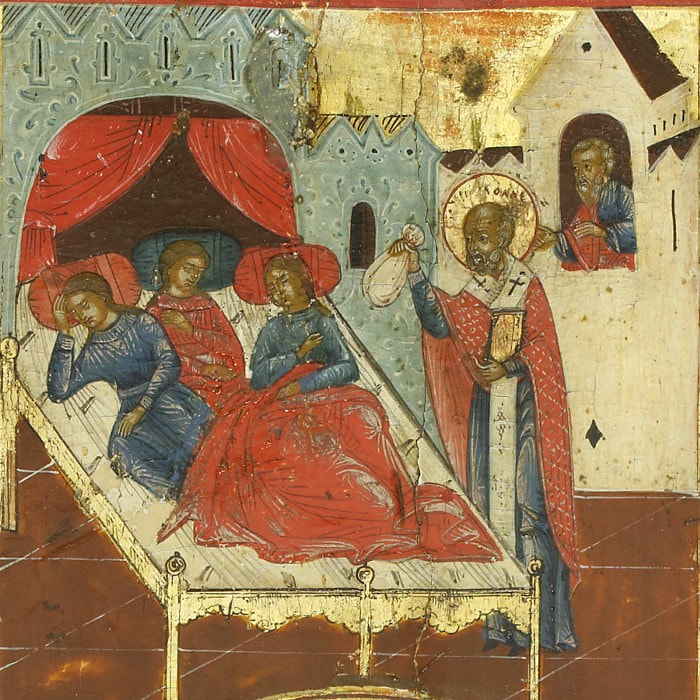 St. Nicholas was a 4th century bishop of the Eastern Orthodox Church and a man of color; his sidekick was an African Muslim. By the 1870s he was depicted as a white guy, and American cartoonist Thomas Nast gave him the red suit (long before he became a mascot for the Coca-Cola company in the 1920s). Photo: The Temple Gallery My point is: the holidays we celebrate, and the shape those celebrations take, are constantly evolving. If you have any doubt about that, just look at the carols we're singing this year. Some of the language and images in that song hark back more to the Bacchanalian revels than to the sanitized version of the holidays familiar to us from Hallmark cards and Hollywood movies. And that’s appropriate; we live in edgier times. But one thing hasn’t changed: the need to reach out to family and friends, sharing comfort and joy, if only through the magic of Zoom. Rich and I spend a lot of time Zooming these days. Last night we gathered online with Rich’s old Navy buddies to celebrate Festivus. I always thought this holiday was invented by the staff of Seinfeld, but I’ve now learned it was Readers Digest editor Daniel O’Keefe who dreamed it up in 1966 to commemorate his first date with his wife. Thirty years later his son, a writer on Sinefeld, gave the world “Festivus for the rest of us.” In addition to the traditional aluminum pole, feats of strength, and airing of grievances, our celebration included donning festive hats. My Festivus grievances were ready, too. A few days ago, we Zoomed with American friends in New Zealand, who told us how the Kiwis approached the pandemic. Within a month of the first reported Covid case in the country, all borders, ports, and airports were closed, and by March 25 there was a strict nationwide lockdown. Cases dwindled, restrictions were eased, and by June 8 life returned to normal except for border controls. That’s right, the pandemic has been over for six months in New Zealand. “We live normally,” our pals explained. “And except for the tourist sector, the economy has completely rebounded.” In that nation of 4,822,233 people, there have been 2096 cases of Covid and 25 deaths. At first I was in awe, and then the outrage hit me. Stopping Covid in its tracks was no pipe dream; New Zealand accomplished it six months ago. Here in America, we had the same scientific data, and far greater resources at our disposal; what we lacked was the political will. By May 27 we’d lost 100,000 people to the virus; just this Monday the death toll passed 300,000, and still there’s no coherent national plan. We’ve suffered 200,000 needless, preventable coronavirus deaths, and another American dies of the virus every 36 seconds, when we could — should! — all be living in a post-pandemic society with a healthy economy. “You might want to tone down your grievance a bit during the Festivus Zoom call,” Rich warned me, after I’d ranted on about this for days. “Don’t want to frighten the horses.” He was right. I put on my tin foil Santa hat, took a few deep breaths, and counted my blessings. Like the debt of gratitude we owe past generations. Our primitive ancestors taught us to keep the flame of hope burning through the longest nights. The Romans showed us how to raise a glass instead of cursing the darkness. And Santa may have stopped dropping gold coins in our stockings, but he does stuff them with chocolate, which helps enormously. One of my favorite blessings? The community of my readers. You guys make me laugh, cry, think, and find strength to go on. Your thoughtful comments help me shape the direction of this blog (so send feedback below). You’ll no doubt be too busy with Bacchanalian revels to do much reading, so I won't be posting next week. Rich joins me in wishing you all a splendiferous [insert name of holiday here] as we stagger to the end (yay!) of 2020 (whew!). ENJOY THE HOLIDAYS, MY FRIENDS! STAY SAFE, BE MERRY, AND HOPE 2021 IS A BETTER YEAR (ADMITTEDLY, A LOW BAR). This post is part of my ongoing series of articles on surviving the pandemic while holding on to some shreds of our sanity and sense of humor, however weird things get. Sign up HERE to get free stories in your inbox each week. Navigating the holidays requires every bit of wit, grit, and gumption we've got. Take shopping, for instance. Fun at first, it quickly degenerates into a morass of doubts: “Is this enough? Too much? Did I give this to them last year? Did they give one just like it to me?” When David Niven was an impoverished young actor, he and his roommate, Errol Flynn, solved the affordability problem by re-gifting things that arrived for them. Until one unfortunate day Niven sent off a lovely leather wallet to the very person who’d sent it to him; he might have tried to pass it off as coincidence except the guy had had Niven’s initials embossed on it. Oops! On another occasion, Niven bought a gorgeous set of handkerchiefs for a young lady he was romancing, and she gave him a car. You just can’t win at the gift game. Juggling family obligations can be equally exasperating. In the old, pre-pandemic days there were endless negotiations divvying up precious celebration time. Goofy relatives became houseguests, driving everybody crazy, as in the movie Christmas Vacation. After Aunt Bethany absent-mindedly gift-wraps her cat, and the jello mold, a harassed Ellen exclaims to her daughter, “I don't know what say, but it’s Christmas and we’re all in misery.” “That’s the thing about unhappiness. All it takes is for something worse to come along and you realize it was actually happiness after all.” — Queen Elizabeth, The Crown Big, boisterous family holidays are the best and the worst of times. Right now it's easy to view them through the rosy lens of nostalgia, but let's not forget the stiletto-sharp jabs only blood kin can deliver. The Crown is full of cringe-worthy family moments, such as Prince Andrew venting annoyance with his mother for “thoughtlessly” taking up media attention opposing apartheid when the headlines should be full of his wedding to Sarah Ferguson. To which Charles replies, “You can hardly blame the newspapers for wanting to write about something other than the wedding of a fringe member of the family who will never be king.” Ouch! “Happiness,” said comedian George Burns, “is having a large, loving, caring, close-knit family in another city.” The enforced separation of the pandemic has changed many relationships, including mine with my brother Mike. We were close as kids, but as adults leading busy lives on separate continents, we connected cordially but very sporadically. As luck would have it, Mike and his wife Deb moved to Spain in February, just weeks before lockdown. Ever since then the four of us have Zoomed multiple times a week sharing news, survival tips, and Netflix recommendations. Mike and I are closer now than we’ve been since our school days, and I count that among the great blessings of 2020. “The strongest person is the person who isn’t scared to be alone.” – Alice Harmon, The Queen’s Gambit “You know you’ve really learned to live with yourself,” I once heard, “if you can drive around the block without turning the radio on.” The pandemic has taught us all how to live with less human contact and often less noise and busyness in our lives. And there’s something to be said for that. Yes, of course, I miss hugs, kissing everybody on both cheeks, and long, crowded dinner parties chatting about nothing and everything. But these unprecedented periods of retreat from the world offer us a rare opportunity to slow down. “Our life is frittered away by detail … simplify, simplify.” I remember reading Thoreau's words while racing around building my career and thinking, “Yeah, that’s easy to say when you live in the woods by a pond. But I inhabit the real world with real deadlines.” Sheltering in place may enable us to take a step back, consider our priorities, and find ways to hit the reset button on our destiny. George Bailey: “You know what the three most exciting sounds in the world are?” Uncle Billy: “Uh huh. Breakfast is served; lunch is served; dinner...” George Bailey: “No no no no. Anchor chains, plane motors, and train whistles.” — It’s a Wonderful Life Throughout It's a Wonderful Life, George Bailey's only dream is to go abroad and have adventures, but events conspire to keep him at home. Much as we are now. I get wistful emails every week from readers mourning the fact our wings have been clipped by the pandemic. There is no telling when — or even (OK, I’ll say it) if — we will ever again have such freedom to roam the world. The vaccines offer hope, but with Pfizer once again revising its production estimates downwards, the timeline keeps getting longer and fuzzier. Officials talk of distribution in December, but just yesterday I asked a Walgreens pharmacist when she expected to be giving Covid inoculations, and she said, “Summer.” My hopes of being near the front of the line due to my age are wobbling, thanks to articles such as this morning’s “’There absolutely will be a black market’: How the rich and privileged can skip the line for Covid 19 vaccines.” It seems some people with power and influence plan to pressure concierge physicians to provide false documentation of pre-existing conditions, hire lobbyists to get their demographic declared “essential” — yes, financial industry, I’m talking about you — or buy black market meds. As one radio commentator put it, “How long will it be before low-income essential workers sell their ID badges for $2500?” If we can’t rely on the government to provide protection, where can we turn? “So the aliens can't read our minds.” — Morgan, Signs You've already laid in ample supplies of hand sanitizer and masks, but how are you fixed for tin foil hats? Since first appearing in a 1927 sci-fi story, aluminum foil headgear has been embraced by conspiracy theorists as a barrier against electromagnetic pulses, alien telepathy, and government mind control, to name but a few. Surely deflecting Covid-19 can’t be far behind. When Rich and I put up our tree this week, I was trying to think of a topper appropriate for this bizarre year, and suddenly it came to me. Do I think a tin foil hat will protect the tree, or us, from anything whatsoever? No, of course not. But it makes me chuckle every time I walk by it. And that counts for a lot, especially these days. So if you find yourself in need of a psycho-spiritual pick-me-up, grab some aluminum foil and get to work. It’s easy, it’s fun, and it offers a pretty reliable cure for the pandemic holiday blues. What are you doing to keep your spirits bright? Let me know in the comments below. YOU MIGHT ALSO ENJOY This post is part of my ongoing series of articles on surviving the pandemic while holding on to some shreds of our sanity and sense of humor, however weird things get.
Sign up HERE to get free stories in your inbox each week. “Who is that glamorous couple?” I asked Bill the Printer one long ago snowy day in Ohio. He'd just run off a stack of holiday cards featuring a gorgeously lit photo of a handsome couple in evening dress. “Are they actors? Millionaire philanthropists?” Bill laughed. “That’s what they want you to think. They’re Joan and Darren Silverman, just ordinary folks. But every year they dress up, produce a flashy holiday card, and send it out to celebrities, hoping for a card in return. And since celebrities can’t always remember who they’ve met during the year, sometimes it works. By now they’re on quite a few high-end mailing lists.” He named some TV personalities, minor film stars, and rising politicos. “Ingenious,” I said. Then inspiration struck. “I know, I’ll do the same thing to them!” Bill thought this was hilarious and — small towns being relaxed about such things — had no qualms about providing me with their address. I was in his shop picking up my own cards, and I went right home and wrote one to them. “Joan and Darren, you’re the best! Continued success in the year ahead.” It was in the mail by nightfall. Bill phoned a few days later. “They’re completely flummoxed,” he said. “They told me they can’t figure out who you guys are!” We exchanged holiday cards with the Silvermans for years, and every time theirs arrived, Rich and I roared with laughter and considered it a highlight of the season. A timely reminder that the holidays aren’t about being perfect or feeling sentimental or finding the meaning of life. They’re about staggering to the end of the year as best we can, arriving disheveled and exhausted, with just enough creative energy left to think up a few last bits of fun to round out the season. Take our Thanksgiving feast, for instance. This being 2020, we knew it would be madness to gather with friends or relatives, so I suggested to Rich that we populate our table with various non-human members of the household: Two life-sized skeletons from Mexico, one of which I’d given to Rich during our courtship, the other I’d presented to him as a wedding gift. A Mayan head wearing a Thai headdress and 3-D sunglasses. A Buddhist monk. And Lucille, who once modeled fashion accessories in a shop and now serves as Rich’s hat rack. “This isn’t creepy, right?” I asked Rich. “It’s just for company, like Tom Hanks and his friend Wilson the Volleyball in Castaway.” “Are you kidding? It’s Thanksgiving with the Addams family.” I sent a photo of our Thanksgiving table companions to European friends in Seville, with the subject line “This isn’t too weird, is it?” They promptly wrote back saying the very fact we could even ask that question was deeply worrying. “This is how we imagine your feast,” they added, sending us a link to the classic comedy skit of the butler who drinks all the wine poured out for absent friends. We may not have a butler, but we did our best to create a vivid atmosphere. Particularly sharp-eyed readers may have noticed in the photo at the start of this post that we used the gratitude quilt as our tablecloth. The quilt project has exceeded my wildest expectations. Many thanks to all the readers, friends, and relatives who told me what they’re grateful for this year. Your comments were wonderful: funny, profound, quirky, and so very, very you. I had to condense the wording considerably, to make the lettering legible while writing with a fat, felt-tipped marker on the rough quilted surface, but I did my best to capture the spirit of every remark. The quilt is now permanently enshrined as our holiday tablecloth, for as long as it lasts. We have agreed wine stains and grease spots will only add to its character. I still have some comments to add, but there's plenty of room for more, so if you haven’t contributed yet, please use the comments section below to let me know what you’re thankful for this year. Even 2020 had its bright spots. (Yes, it did!) What am I thankful for? The Covid-19 vaccine. With our national numbers climbing to dizzying heights — 13.8 million cases and 271,000 deaths at last count — recent announcements that scientists have come up with effective immunizations sparked widespread rejoicing. But the fizzy mood of unity falls flat the moment talk turns to the distribution plan. Because there is no plan. There won’t be nearly enough to go around, at least at first. Pfizer and Moderna combined are expected to produce and distribute enough vaccines for 45 million people by the end of January, leaving 283 million Americans still unprotected. The current administration has refused to take on the task of organizing the distribution, leaving it up to the governor of each state to decide who gets first dibs on the two-part vaccine. Everyone agrees healthcare workers are the top priority, but donnybrooks of Biblical proportions have erupted over who comes next in each state. Non-medical essential workers, older adults, obese adults with compromised immune systems, meat packers, ski instructors living in shared housing … the lists go on and on. Rich remains optimistic about our chances. “Luckily, we’re living in Marin County, the epicenter of the anti-vaccination movement. That means a lot less demand from our neighbors. We’re older adults, so after healthcare workers, we’re practically at the head of the line.” The powers that be continue to duke it out, and I suspect not much will happen until the new administration takes over on January 20. Whatever the timeline, I’m holding on to the idea that the vaccine might be coming my way by the spring, paving the way for our return to Seville. Spain’s numbers are falling now, another hopeful sign, although more spikes are likely everywhere due to super-spreader family togetherness this month. In the meantime, I’m sending messages of holiday cheer to my amigos around the world. The few I have street addresses for will be getting real, paper holiday cards, something I haven’t sent out since I moved to Seville. Sadly, I can no longer find the address I once had for the Silvermans. Which by the way, is not their real name; I didn’t want to reveal their identity and risk spoiling their game, should they still be at it. And I hope they are. In fact, I imagine them sitting by a fireplace writing out their bogus cards again this year, trying for Tom Hanks, Betty White, and Dr. Fauci. I picture one turning to the other and remarking, “Remember those total strangers who used to send us holiday cards? The McCanns? Boy, those guys were really weird.” I like to think in our own small way we helped make their holidays truly special. YOU MIGHT ALSO ENJOY This post is part of my ongoing series of articles on surviving the pandemic while holding on to some shreds of our sanity and sense of humor, however weird things get.
Sign up HERE to get free stories in your inbox each week. |
This blog is a promotion-free zone.
As my regular readers know, I never get free or discounted goods or services for mentioning anything on this blog (or anywhere else). I only write about things I find interesting and/or useful. I'm an American travel writer living in California and Seville, Spain. I travel the world seeking eccentric people, quirky places, and outrageously delicious food so I can have the fun of writing about them here.
My current project is OUT TO LUNCH IN SAN FRANCISCO. Don't miss out! SIGN UP HERE to be notified when I publish new posts. Planning a trip?
Use the search box below to find out about other places I've written about. Winner of the 2023 Firebird Book Award for Travel
#1 Amazon Bestseller in Tourist Destinations, Travel Tips, Gastronomy Essays, and Senior Travel
BLOG ARCHIVES
July 2024
CATEGORIES
All
|
